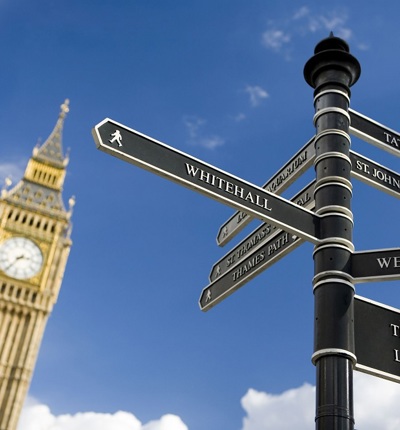
Blacklisting of Declassified UK was 'institutional reflex' says independent review
Review into the 'blacklisting' of investigative journalism website Declassified UK has revealed that it was labelled “a hostile website” on which the MoD “should not waste any time”.
Posted on 08 December 2020
The review, carried out by former Downing Street spokesperson Tom Kelly, has found that a military officer on loan to the MoD press office suggested in July that Declassified “should be put on a list of organisations which the Department would not engage with, or rarely engage with, because it was not considered a reputable source of news”.
The MoD’s communications director subsequently ordered the MoD press office “not to waste any time on Declassified”. If Declassified called, he said, they should be told to submit a Freedom of Information request, reported Mr Kelly.
According to the review, published on Monday 7 December, the rest of the department “interpreted his comment as a direction not to engage with Declassified” and MoD press team staff believed the director “had sanctioned a blanket ban”.
The review was ordered by Defence Secretary Ben Wallace following an incident in August 2020 in which Declassified UK was refused a comment from the MoD despite providing it to other news organisations.
In an exchange with an MoD press officer, Declassified was told “we no longer deal with your publication” after a request for a comment on a story that a serving soldier had been arrested following a protest regarding the UK’s involvement in Yemen.
The MoD’s treatment of Declassified was widely criticised and led the Council of Europe to issue a level 2 “media freedom alert”. Leigh Day solicitors wrote to the MoD at the time on behalf of Declassified UK and the incident was raised in the House of Commons.
According to the review, the department director told Mr Kelly that his comment was not meant to imply that Declassified should be blacklisted, nor that the principle of blacklisting was in any way acceptable. Instead “he meant was that his team should not expend a disproportionate amount of time answering questions from it, given that its audience was relatively small compared to the mainstream media, and that it had a clearly hostile agenda”.
Mr Kelly reported: “The suggestion crossed a line - and, in hindsight, should have been called out as such. It was suggesting a course of action which, as far as I can see, was without precedent, and would have discriminated against Declassified and which, therefore, would have prima facie breached both the Civil Service Code and the Communication Service’s Guidance.”
He said that in his view, the failing was a result of an institutional reflex rather than any direct political bias.
He said it was disturbing that experienced communications professionals in the Defence Communications Directorate did not challenge the direction they thought they had been given.
...serious questions about this Government’s approach to journalistic enquiries remain unanswered. That an entire departmental press team could have come to a mistaken belief that the director of communications had imposed a blanket ban is surprising and requires further explanation."
Tom Short, lawyer at Leigh Day
Recommendations in the report include issuing the Defence Communications Directorate with copies of the Civil Service Code and Government Communication Service Propriety Guidance, and reminded of the principles on a daily basis. A monthly report to Government ministers should include an assessment of how communications staff have upheld their duty to be impartial. Serious consideration should be given to the level of experience needed to work in the highly pressurised MoD communications office and to put the code and guidance into practice in that environment.
Mark Curtis, Editor of Declassified UK said:
“We welcome this review and the evidence it has uncovered. But this suggests that Declassified was indeed blacklisted, which is contrary to the way that public officials are required to deal with media organisations. The MOD should admit it and not have let its most senior media official off the hook.
“Declassified is different and seeks instead to perform a public service by revealing what governments do.”
Leigh Day solicitor Tom Short said:
“While our client welcomes the public confirmation in the Kelly report that the MoD press team crossed a line and discriminated against journalist from Declassified, serious questions about this Government’s approach to journalistic enquiries remain unanswered. That an entire departmental press team could have come to a mistaken belief that the director of communications had imposed a blanket ban is surprising and requires further explanation. Our client will be making further enquiries.”

